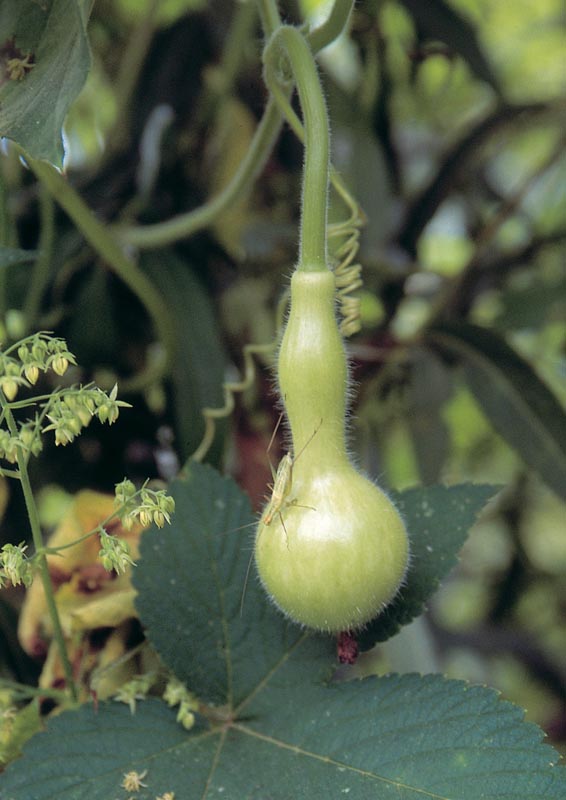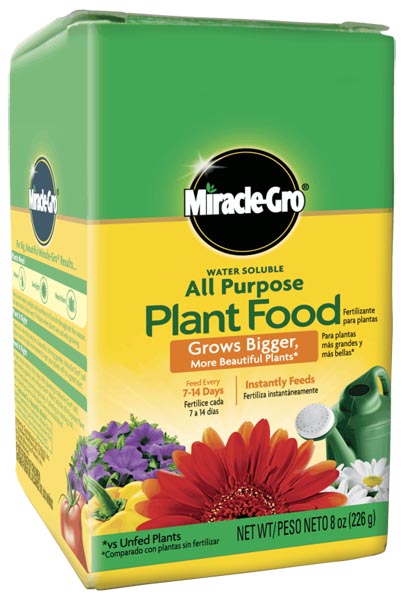
Squash needs a lot of fertilizer, and the right type of fertilizer. If you get it right, then you will surely have the healthiest and best-tasting squash.
Find out about the best fertilizer for squash.

What is the Best Fertilizer for Squash?
Miracle-Gro All Purpose Plant Food is a fantastic fertilizer in general and especially for squash. It has a stellar reputation amongst gardeners for good reason. Other good options include Sustain 4-6-4 Fertilizer, Osmocote Flower & Vegetable Plant Food, Jobe’s Organics Vegetable & Tomato Fertilizer and Dr. Earth Organic Vegetable Fertilizer.
What You Need to Know About Squash
There are many names for squash. There is squash that is widely used for savory cooking. Some varieties are also called gourds.
Then there is the popular Halloween variety known as pumpkin.
All these
They are collectively known as Cucurbita. They are also herbaceous vines.
Squash is actually a fruit, since it has seeds in the middle of it. However, just like the tomato, people usually refer to this plant as a vegetable.
And just like the tomato
Squash can be made into different things. You can make savory dishes using squash and it’s also a popular dessert as in squash / pumpkin pie, pudding, and cakes.
You can also turn it into juice. The pureed form is also a popular soup.
Or you can just eat it as is. You can steam it or roast it and the squash is already a comfort food. Mashed squash is also popular and is often a recommended first solid food for babies.
Very healthy, too
There are so many vitamins and minerals present in squash. It has vitamin C and beta carotene, which are great for the eyes. Beta carotene is already good for the skin.
Squash also contains B6, which would lower your risk of depression. Plus, it’s high in fiber, which would be fantastic for digestion.
Here are some of the vitamins and minerals you get from squash:
- Calcium
- Iron
- Magnesium
- Vitamin A
- Vitamin B6
Moving on
There are two main varieties of squash: winter squash and summer squash. The latter is usually harvested before it has fully matured.
On the other hand, winter squash has a rougher exterior and spends more time on the vine. That rigid exterior allows the squash to be stored for months.
Here are some of the more popular cultivars of squash:
- Acorn
- Butternut
- Cocozzelle
- Crookneck
- Kabocha
- Pumpkin
- Scallop
- Spaghetti
- Straightneck
- Vegetable marrow
- Zucchini (also known as courgette)

Tips for Growing Squash
Squash is fairly easy to grow, which is also why it is among the most popular fruit/vegetable grown in the garden.
Of course, people also grow it for its produce and its taste.
As mentioned
Squash is really versatile. You can make juice out of it or cook soup. It can also be used in various savory dishes as well as desserts.
Even the seeds of most winter squash varieties can be eaten. The same could be said about the flowers.
Also, pumpkins are popular decorations during Halloween.
What squash needs:
If you want to grow healthy and delicious squash, you have to ensure that the right circumstances are applied.
Here are important requirements for growing squash:
- Squash needs full sun.
- It requires sufficient moisture.
- It also needs fertile soil.
So
The first thing you need to do is to fertilize your soil. You can use compost in order to introduce moisture.
Then of course, you need to add fertilizer. The area where you wish to plant the squash should be rich in organic matter.
This means
You have to mix compost and decomposed manure into the soil.
This process will also ensure that the soil will drain well.
Sowing seeds
Since squash fruits are fairly large, they should be planted on the ground. However, you can start indoors.
You could plant seeds in small containers and then transplant them later.
But they could also be sown directly into the ground.
Important tip
You should sow the seeds only when frost has ended. Remember, squash seeds need full sun. This actually means that they need warmth in order to grow well.
So, it would be better to wait until the soil is a bit warm before you start planting.
This is why
Some people prefer to start growing squash indoors. This way, they could start planting during winter and they could be kept warm by a heating mat.
By the time the danger of frost has passed, you already have seedlings that you could transplant into your garden.
Look
Squash plants prefer to be planted on hills. Not literal hills, mind you. You just need to create mounds of soil that would resemble a hill.
You could start sowing four to five seeds for every hill.
However
When the seedlings have developed, you can concentrate on just growing the two healthiest ones.
This means that you have to remove the weaker seedlings.

Best Fertilizer for Squash
Squash thrives in fertile soil–I think I’ve already mentioned that a couple of times.
Aside from the fertile soil, you also need to put just a pinch of 10-10-10 fertilizer around the area.
Moving forward
When you already see the plants growing up, you should then add another dose of fertilizer. This time, you want to sprinkle the fertilizer around the base of the squash.
The purpose of this is to ensure that your plants will have sufficient amounts of nutrients while they are growing.
Actually
This would also spur growth. It means that your squash will grow fast and healthy to boot.
Now, it’s important to note that while the squash needs a lot of fertilizer, it doesn’t need to be overfertilized.
Here’s what you should do
Read the packet of the fertilizer to know how much is appropriate for your plant.
Don’t forget to wear gloves when you put the fertilizer. A mask and a pair of goggles would be good too, to ensure safety.
Here are the best squash fertilizers on the market:
1. Miracle-Gro All Purpose Plant Food

This is a great fertilizer in general. It’s also one of the best specifically used for squash.
With this product, you can enjoy bigger and definitely more delicious squash come harvest time.
Not only that
Your plants will also grow more beautiful. Squash is mainly grown for its fruit, but having beautiful plants doesn’t really hurt.
Besides, that would make the overall look for the garden wonderful.
How to use:
You can feed your plants with this fertilizer every two weeks. You can use a garden feeder or a watering can to spread it.
2. Sustain 4-6-4 Fertilizer

This is an organic and all-natural fertilizer. So, of course it’s going to be good!
It’s not just that it feeds the plants important nutrients, this product also improves the soil structure.
Moreover
The product promotes microbial biodiversity.
This fertilizer is known to help spur the growth of more fruits and flowers in plants. So, not only will you have sufficient yield, your garden will also look more beautiful.
Squash flowers are really lovely and bright with their yellow hue.
How to use:
You can follow the general instructions of fertilizing squash during growth. You can sprinkle the fertilizer around the base of the plants.
You can also read the instructions for appropriate use.
3. Osmocote Flower & Vegetable Plant Food

This fertilizer promotes excellent root development and active plant growth.
Basically, you have efficient top and bottom development. That’s basically what we want in plants all the time.
Further
This is an ideal product for perennials.
The fruits and vegetables also become more flavorful when you use this product.
How to use:
Sprinkle a scoop of this plant food every four square feet of garden area. This could last up to four months.
4. Jobe’s Organics Vegetable & Tomato Fertilizer

Don’t be intimidated by the tomato being singled out in this fertilizer. It works really well on squash, too.
This product introduces beneficial bacteria to the plants.
Now hear this
It has a high phosphorus content that will help the fruiting process. Using this product means your plants will bear more fruits.
They will also be more delicious.
How to use:
Apply the product around the base of the squash every four to six weeks.
5. Dr. Earth Organic Vegetable Fertilizer

This is an organic fertilizer, which is proof that it’s a superior fertilizer. It’s natural and great for the environment.
It’s also truly efficient especially with your squash.
How so?
The product contains probiotics and seven different strains of essential microbes. Those features would help make really delicious squash.
Moreover, this fertilizer has absolutely no GMO.
How to use:
Use as a top dressing. One application of this fertilizer would last for a few months.
Summary
Squash thrives in fertile soil. From the start, your soil should already have a good mix of compost to ensure its fertility.
However, during the growth period, you also need to regularly feed the developing squash with fertilizer. Using the best fertilizer for squash is important in ensuring that your squash will grow healthy and strong.
More importantly, the right type of fertilizer will make really delicious squash. Not only that, the product could also prompt the plant to bear more fruits.
Useful Resources
- 16 Types of Squash and Everything You Need to Know About Them – Country Living
- Tips for Growing Squash – Gardening Know How
- How to Grow Squash – Royal Horticultural Society

